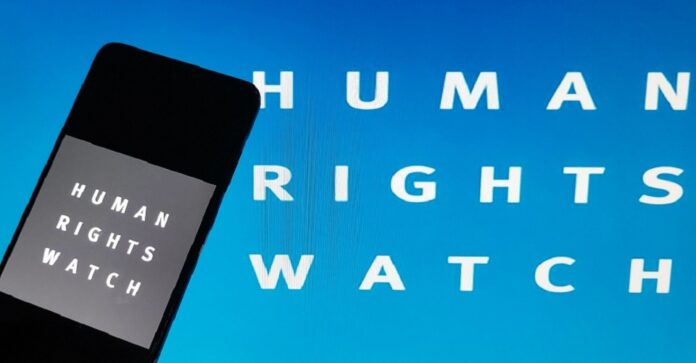Human Rights Watch (HRW) yesterday warned that Sri Lanka’s flawed tax policies were central to the country’s 2022 economic collapse and continue to deprive citizens of essential public services. The rights group called on President Anura Kumara Disanayake’s government to overhaul a system that favours corporations and the wealthy while failing to generate sufficient revenues for public welfare.
In its 101-page report, “Tax Giveaways, Struggling Schools: How Low Taxes Drove Sri Lanka’s Economic Crisis and Squandered its Education Lead,” HRW highlighted how decades of revenue-starving policies have weakened the State, leaving it heavily dependent on regressive consumption taxes.
“For decades, Sri Lanka has been hostage to economic policies that starve its Government of revenue and focus narrowly on GDP growth,” said HRW Senior Economic Justice Researcher Sarah Saadoun. “These ruinous tax policies have left education spending far behind, turning Sri Lanka from a global leader in public education to a laggard.”
The report found that public education spending fell from 3–5% of GDP in the two decades after independence to just 1.5% in 2022, among the lowest globally. Funding gaps forced schools to charge fees for basic resources, exacerbating inequality and undermining children’s right to free education.
HRW said Sri Lanka’s low revenue base contributed to the April 2022 debt default, triggering job losses, soaring inflation, and a prolonged social crisis. The group traced the roots of the problem to liberalisation policies of the late 1970s, worsened by 2019 tax cuts under former President Gotabaya Rajapaksa, which significantly reduced government revenues.
By 2022, tax exemptions for companies cost the Treasury 56% of total revenue, nearly three times the national education budget, while 80% of tax income came from goods and services, disproportionately burdening low-income households.
Saadoun emphasized, “Growth alone is not enough to fulfil human rights. The Government should establish a progressive tax system and ensure funds are used to support education and public services for all.”
HRW recommended eliminating costly corporate exemptions, introducing a wealth tax, and strengthening enforcement. While the current administration has taken limited measures, such as a Rs. 6,000 transfer to low-income families, HRW urged the government to raise education spending to 4–6% of GDP in line with international standards and human rights obligations.
HRW Calls for Tax Reform to Rescue Sri Lanka’s Education Sector
Human Rights Watch (HRW) has warned that Sri Lanka’s tax policies played a major role in the 2022 economic collapse and continue to deprive citizens of essential services. In its 101-page report, HRW said successive governments favoured corporations and the wealthy while failing to generate adequate revenue, leaving the country reliant on regressive consumption taxes.
The report noted that education spending fell to 1.5% of GDP in 2022, forcing schools to charge fees for basic resources and widening inequality. Tax exemptions for companies cost the Treasury 56% of total revenue, nearly three times the national education budget, while 80% of tax income came from goods and services, disproportionately affecting low-income households.
HRW urged President Anura Kumara Disanayake’s government to introduce a progressive tax system, eliminate corporate exemptions, and increase education spending to 4-6% of GDP to uphold human rights and strengthen social services.
